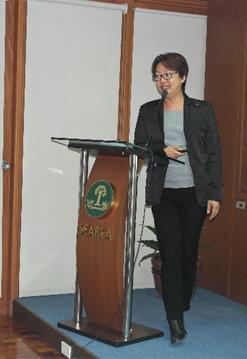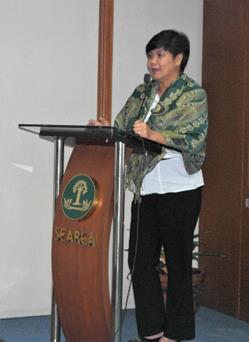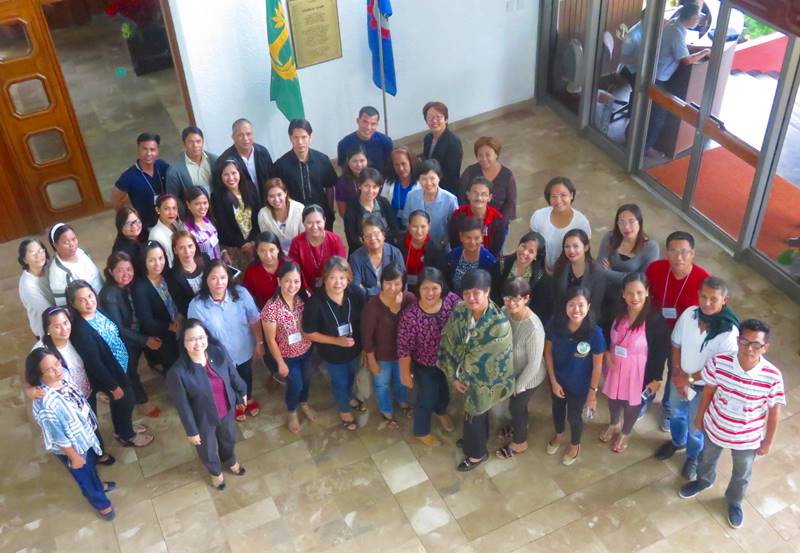

Assistant Regional Director Mr. Francis Cesar Bringas, of DepEd Region IV-A (CALABARZON), presented the status and updates of DepEd’s programs that address malnutrition and hunger among school children, namely, School-based Feeding Program (SBFP) and the Gulayan sa Paaralan Program (GPP) during the opening ceremony.
Similarly, Ms. Lucia Campomanes, Director III and Focal Person for Organic Agriculture of the Department of Agriculture, Regional Field Unit IV-A (DA-RFU IV-A), discussed DA’s plans in support of the Gulayan sa Paaralan. According to Ms. Campomanes, the Organic Agriculture (OA) banner program of the Department will support 100 schools in CALABARZON through the provision of garden inputs such as seeds, vermicompost, African Night Crawlers, and garden tools.
The Project Management Team, headed by Dr. Blesilda M. Calub, University Researcher III of UPLB’s Agricultural Systems Cluster, College of Agriculture, presented the highlights of activities and major accomplishments during the project’s first year of implementation. Furthermore, the accomplishments of the nutrition and socio-economic components were presented by Dr. Leila S. Africa, Associate Professor 3 of UPLB’s Institute for Human Nutrition and Food - College of Human Ecology (IHNF-CHE) and Mr. Henry M. Custodio SEARCA Program Specialist, respectively. In turn, each of the participating schools presented their individual accomplishment reports.
During the workshop, the participants were grouped according to municipalities where schools are located and were asked to do SWOT Analysis (Strengths-Weaknesses-Opportunities-Threats), Strategic SWOT analysis, and action planning. Through this exercise, the hindrances, success factors, and strategies in relation to the maintenance and sustainability of the school and home gardens project were systematically determined. (Anna Gale Vallez)
